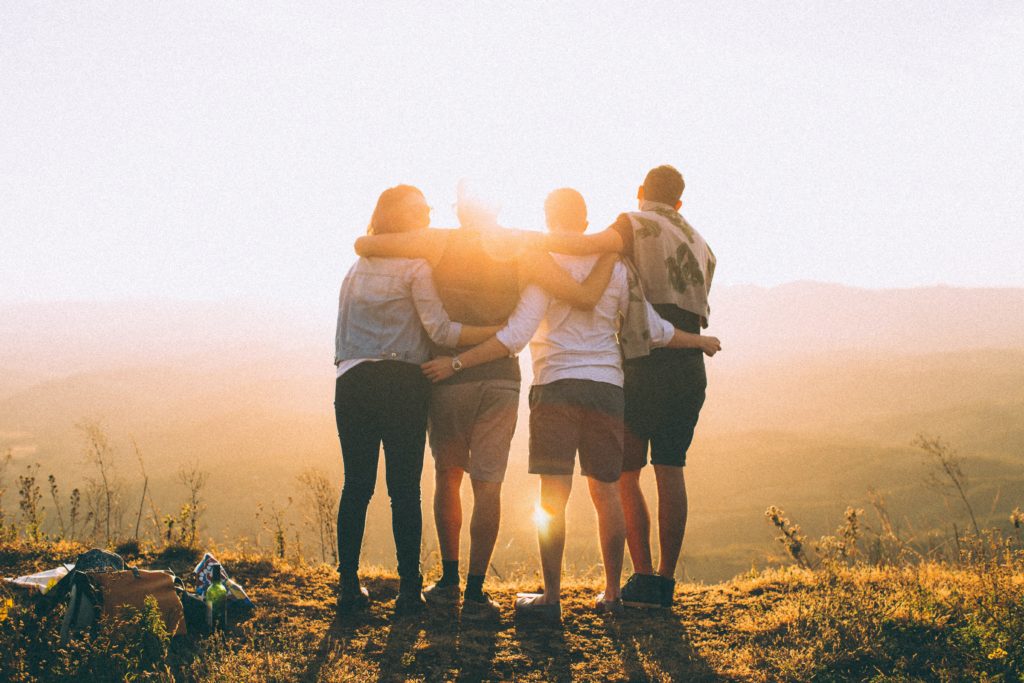But I don’t want to go back outside
When the pandemic took away drinks by the bar, dancing at the club, beach pumps, house limes and overpriced boozy brunches, our friendships became limited to phone conversations, texting and video calls.
Thankfully my friends are as equally averse to phone calls as I am so I dodged that rusty bullet.
We have now been at this for almost two years. When I scroll through my social media feeds I can’t go a day without reading a post from someone flashing back longingly to their days of partying and promising the Universe they would never take a party for granted again.
In those moments I can’t help but flash forward to my friends asking me to go to that first post-pandemic party and the answer that spills out of my mouth is:

Do I have to?
I don’t miss it.
I don’t miss hanging out in noisy places and going home hoarse from trying to talk over that noise.
I missed dancing and I quickly rectified that by hosting nightly dance parties in my bedroom. No uncomfortable shoes, no line for the bathroom and I get to choose the music.
Most of my friendships have adjusted to the situation and continue to thrive.
The friend that lives closest to me offers to bring me back something every time he goes to the grocery and I do the same for him when I go the coffee shop. We both usually refuse the other’s offer but it is less about the deed and more about the fact that a support system exists and feels good to have. Another friend convinced me to join Tik Tok.
Every day she sends me videos that she thinks I would like. It’s very one-sided I will admit mainly because I’m still learning how to use the darn thing but it allows me to feel connected to her by sharing mutually entertaining and interesting content.
My all-time favourite pandemic friend-evolution though – the crew that convenes every Friday to play the online version of “Boy, Girl, Place, Thing…” if you know, you know!
I enjoy it.
It gives me time and energy to work on things I have been putting off for ages and I may not be ready to relinquish any of that once the lime returns to the outside.
The popular saying, “humans are social creatures” comes to mind and brings with it the question –
How much social activity do we creatures really need?

I can’t think of one TV show or movie I watched growing up that did not include the main characters having friends or where the main characters were all friends with each other. There were the imaginary ones that tagged along for adventures in the woods, close-knit ones that hung out together at the coffee shop every day and the ones that sat with the lonely hero at lunch or provided backup to confront the school bully.
You’re supposed to have friends, and if you don’t the pieces will all come together to give them to you. They’re vital to your mission to conquer the world (or to helping you get over a breakup or study for a test).
Psychologist and author, Dr. Daniel Marston, in an article for Psychology Today says, “…in a book reviewing comparative social psychology research, Terry Maple and I (2016) found considerable evidence that being a “social animal” does not require emotionally intimate relationships like “friendships.” Having friends is nice and can be beneficial—but it is not necessary for survival in social environments. Social isolation is detrimental—but there is a huge gap between an individual being “socially isolated” and having “friendships.” You can gain all the benefits associated with social relationships just by having the ability to interact with other people. It is not necessary—although it might be nice—that any of those relationships meet the criteria of being “friendships.” “
Basically, we don’t have to worry about becoming feral without interacting consistently and intimately with the people in our lives. The thing about that is – friends are most likely there because we like them (if not, you should think about that) and even though our friends may enjoy activities we don’t we still want to spend time with them.
It is possible that this hesitance is temporary.
It may be that some of us are convincing ourselves that we don’t want to go back to normal because we are unable to live that way right now anyway and believing this is how we prefer things is our way of coping with that. Eventually the room we are locked in can become a sanctuary instead of a prison and with some coaxing out of the house we will be once again spending our weekends out.
If that does not happen and our newfound preference persists, we have to reconcile with the fact that some things are going to happen without us.
The fear of missing out is a feeling we all know in some regard. When I see the pictures of my friends out making memories together, knowing I would not understand the new inside jokes and I will turn into the person they tell the story to rather than the person that helps them tell it – it’ll hurt.

Darlene McLaughlin, M.D. says, “The problem with FOMO is the individuals it impacts are looking outward instead of inward. When you’re so tuned in to the ‘other,’ or the ‘better’ (in your mind), you lose your authentic sense of self. This constant fear of missing out means you are not participating as a real person in your own world.”
It boils down to figuring who you are and what you want, then interacting with the world around you in a way that feels authentic to that. It is identifying your own needs and wants as valid.
The friends that value you will meet you where you are and you can make an effort to create opportunities for those friends to meet you there by planning activities that suit your interests.
It could all just be a part of growing up.
That’s a kind way of saying, “yuh just getting old.” I’ve heard this one a lot and it was from somebody older than me every single time. I have seen it at play myself as well. Getting married, focusing more on work and personal development or having children are all things which affect the ability to successfully maintain friendships with age as it leaves less time and energy to dedicate to doing so.
Greek philosopher Heraclitus of Ephesus is credited with the claim that the only constant in life is change. Personal interests change over time and some friendships cannot be sustained in the absence of the original interest or environment that fostered the relationship in the first place.
Nature may well be taking its course.
The one guiding principle I find useful in navigating it all is this – Friendships are not a requirement; they are a choice. With mortality screaming in our faces every day in the form of scary statistics, headlines and forwarded messages, our choices will guide how we feel about the moments we have yet to live. I’ll be keeping the friendships that feel good and communicating through the ones that don’t.
Whatever sticks, I will be happy it does. Maybe I might even stay out all night for the ones that do.
Until then, I’m headed to the coffee shop, let me know if to bring you a cold brew on my way back.
Works Cited
Mark, Joshua J. “Heraclitus of Ephesus.” World History Encyclopedia, World History Encyclopedia, 24 July 2021, www.worldhistory.org/Heraclitus_of_Ephesos/.
Marston, Daniel. “Why You Don’t Need Friends.” Psychology Today, Sussex Publishers, 2019, www.psychologytoday.com/us/blog/comparatively-speaking/201905/why-you-dont-need-friends. Texas A&M University. “FOMO: It’s your life you’re missing out on.” ScienceDaily. ScienceDaily, 30 March 2016, www.sciencedaily.com/releases/2016/03/160330135623.html.










Leave a Reply
You must be logged in to post a comment.